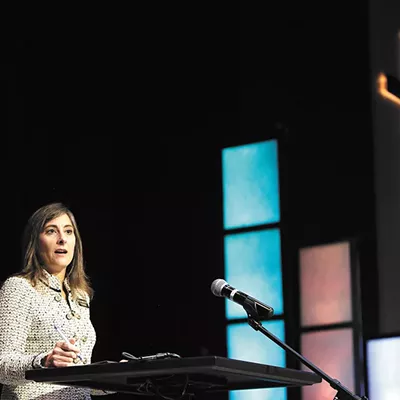Too Much We Don't Know
I have no problem with the idea of Genetically Modified Organisms ("Who Is Afraid of the GMO?" 9/26/13). I think we could successfully meet many of the world's challenges through genetic engineering. All of the technical progress that has ever been made was made by modifying something — and the benefits of modifying genes probably hold more potential gains for humanity than most other technical pursuits do.
What I do have a big problem with is who is doing genetic engineering and why. I don't believe that Monsanto, DuPont, Dow and Bayer are working for the benefit of humanity. I believe these companies feel a need to keep their doings secret because if what they are doing were well known, the lawsuits against them would never end.
Jeremy Street
Cheney, Wash.
Music in the Fields
In "Is Monsanto Evil?" (9/26/13), you wrote, "Monsanto's crackdown on 'seed piracy' has drawn comparisons to the Recording Industry Association of America." It is important to contrast that music we avoid doesn't spread in the wind and just land on our albums. Monsanto sued a farmer for piracy when Monsanto's seed fell out of trucks and invaded a field. Monsanto sued federal governments for not enforcing piracy laws in cases where Monsanto's genetics invaded farms, where farmers never wanted them.
The Supreme Court loyally ruled 9-0 in favor of Monsanto. Clarence Thomas failed to recuse himself for having been an attorney for Monsanto. Close ties within the Bush administrations are paying off now that saving seed from one's own crops has been banned in Iraq.
Monsanto invades our fields with terminator genes destroying our own genetic collections and then sues us after infecting our crops with their experimental genetics. Now they are helping write the Trans-Pacific Partnership, which would internationally ban labeling and generic drug production. If democracy, health and freedom are evil, then Monsanto is saintly.
Dustin Mustang
Spokane, Wash.
Spokane Owes Him
I found "Museum of Discontent" (9/12/13) to be slanted toward the high school mentality antics of disgruntled workers, and unfair toward Forrest Rodgers. I've only experienced Forrest as a kind, very thoughtful and very knowledgeable person. The measured way he's gone about this whole debacle speaks very loudly to his character.
Even Rodgers' detractors have to admit that this situation has been highly politicized. But that seed was planted long ago in the operations of the museum, and germinated when the Board illegally (according to their own by-laws) fired Rodgers.
Since then, Forrest has been caught in the middle, and he's dealt with the whole thing very gracefully. While the sides were as split as our Congress, Forrest kept his mouth shut and let people have their say, and suffered all the criticism with great dignity.
I do harbor some serious disdain toward the behind-the-scenes machinations of the MAC's past regime. There have been too many amateurs playing the game for too long, saddled with too many tender and needy egos.
This situation is Spokane's fault, not Forrest Rodgers' fault. Buck up, shut up and let the man do his job. Give Rodgers a real second chance instead of setting him up for failure.
Carl David Leeth
Spokane, Wash.



















